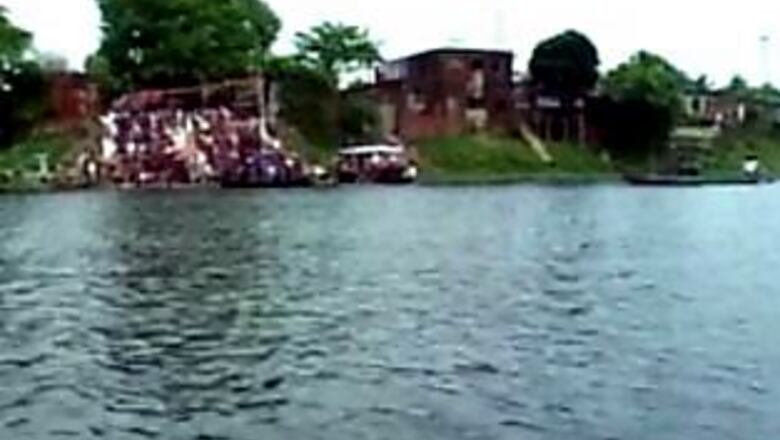
views
Guwahati: China has formally clarified to India that it is not building a dam over the Brahmaputra river on its side, Arunachal Pradesh Chief Minister Dorjee Khandu said on Tuesday.
Prime Minister Manmohan Singh met a group of legislators and MPs from the northeastern state led by Dorjee Khandu in New Delhi on Monday.
"The Prime Minister assured us that there was no dam being constructed over the Brahmaputra by China. In fact, Beijing had formally communicated this to the Indian Government," Khandu said.
The controversy follows media reports that Beijing was constructing a $167 million hydropower plant in Zangmu, 140 km southeast of Tibet's capital Lhasa, besides diverting water to its parched northwest and northeast territories, which includes the Gobi desert.
The 2,906-km long Brahmaputra is one of Asia's largest rivers that traverses its first stretch of 1,625 km in Tibet, the next 918 km in India and the remaining 363 km through Bangladesh before converging into the Bay of Bengal.
"We are happy with the Prime Minister's assurance," the chief minister said.
There were fears expressed by both the Assam and Arunachal Pradesh governments that diversion of water from the Brahmaputra would lead to a natural disaster in the region.
Assam Chief Minister Tarun Gogoi is meeting Manmohan Singh on Tuesday night to express fears about the reported dam construction.
Media reports of Chinese incursions into India and Beijing's opposition to the Indian prime minister's visit to Arunachal Pradesh - a region Beijing claims - also figured in Monday's meeting.
"Chinese claims are simply unfounded and baseless. Arunachal Pradesh is an integral part of India and the Prime Minister said categorically that this is New Delhi's stand," Khandu said.
Beijing in 2003 gave up its territorial claim over Sikkim but still says that nearly all of Arunachal Pradesh belongs to it.
The mountainous state of Arunachal Pradesh shares a 1,030-km unfenced border with China.
China has raked up a controversy by asking India not to allow Tibetan spiritual leader the Dalai Lama to visit Arunachal Pradesh in November.
Chinese foreign ministry spokesperson Jiang Yu said: "We firmly oppose Dalai visiting the so-called 'Arunachal Pradesh'."
The Dalai Lama is scheduled to visit the Tawang monastery in Arunachal Pradesh, bordering China, besides capital Itanagar.
"China should not interfere with the Dalai Lama's proposed visit to Arunachal Pradesh. We welcome the Dalai Lama's visit," the Arunachal Chief Minister said. It is through Tawang in Arunachal Pradesh that the Dalai Lama escaped the Chinese to enter India in 1959.
The India-China border along Arunachal Pradesh is separated by the McMahon Line, an imaginary border now known as the Line of Actual Control.
India and China fought a border war in 1962, with Chinese troops advancing deep into Arunachal Pradesh and inflicting heavy casualties on Indian troops. The border dispute with China was inherited by India from British colonial rulers, who hosted a 1914 conference with the Tibetan and Chinese governments that set the border in what is now Arunachal Pradesh.
China has never recognised the 1914 McMahon Line and claims 90,000 sq km - nearly all of Arunachal Pradesh. India also accuses China of occupying 8,000 sq km in Kashmir.
After 1962, tensions flared again in 1986 with Indian and Chinese forces clashing in Sumdorong Chu valley of Arunachal. Chinese troops reportedly built a helipad in the valley leading to fresh skirmishes.



















Comments
0 comment